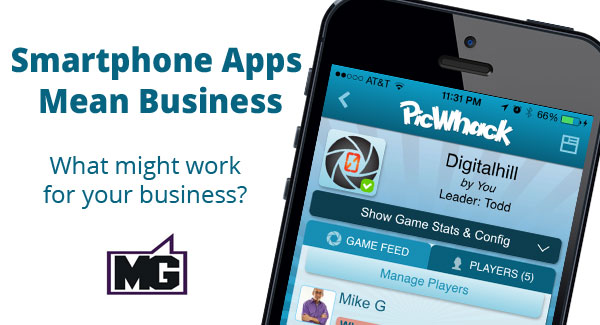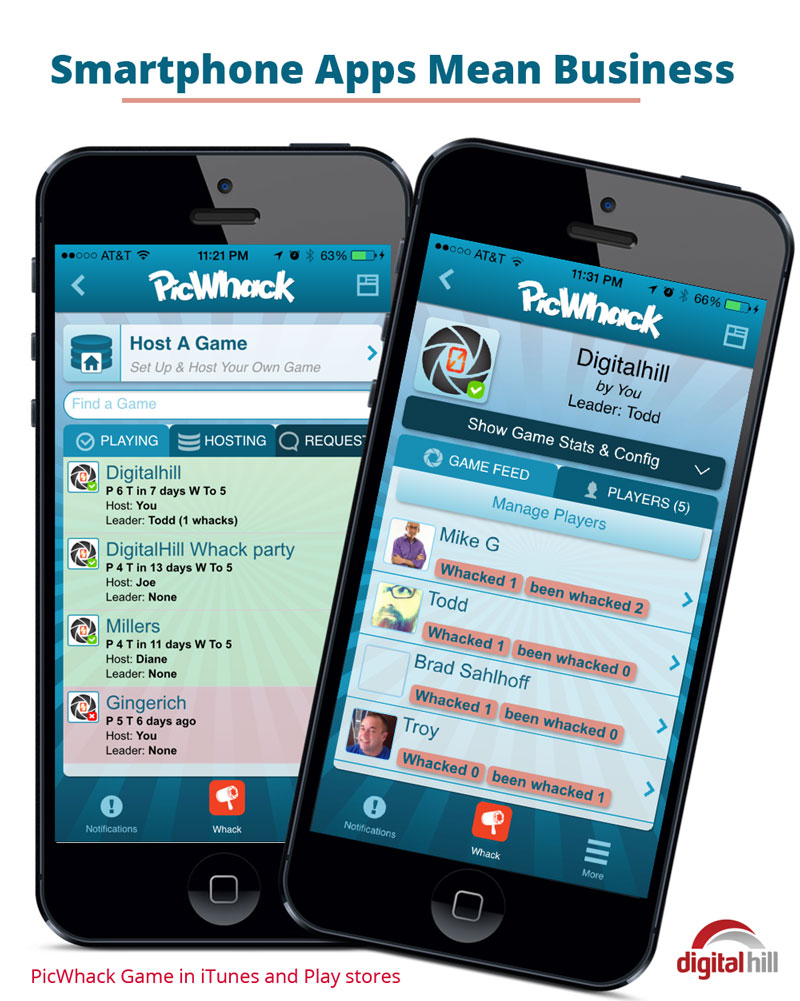Mobile Apps for Business
The statistics continue to astound…
- 90% of American adults have a cell phone (Pew Research 1/2014),
- As of the end of September, 72% of U.S. mobile users have a smartphone (comScore Report).
We have become a mobile computing society.
For businesses, this means there is an important need to consider how to reach and do business with your customer base via mobile devices. One of the best ways is with a smartphone app.
Business apps for smartphones can vary greatly in use, type, and features. While 72% of all smartphone users have the Facebook app on their phone, and active users spend nearly 40 minutes A DAY on Facebook, (TechCrunch report 7/2014) your customer base is unique to you and likely won’t spend that much time in a app you create each day. So the questions are, what kind of app would work for your business, and is the investment worth it?
In this article we’ll look at some of the main app types and their uses.
Member Services:
One app area that is growing significantly is the Member Service app. It is essentially an app for existing customers of a business to use and a benefit that can be marketed to new potential customers as something that set this company apart from others. This is often seen in the bank and credit union realm. Common member service app features include private logins with access to account information, services, and specific tools. For banks and credit unions this means bank account access, paying bills, and depositing checks. It’s a great tool to offer convenience, value, and a way for consumers to stay connected to the business. A primary value for a business of a member service app is the ability to send “push notifications.” These are in app message alerts to the smartphone user that mobile sites cannot perform. It increases the touchpoints a business can have with an individual and provides a customized experience.
Utility / Membership Apps:
A close cousin to Member Service apps are apps in the utility and membership service areas. A utility is a app that has a function such as tracking your miles walked, giving you ability to scan or fax documents, or send postcards from your phone. Membership apps can be apps that are an extension of a monthly service such as a gym or fitness app. These apps help users perform certain tasks or track certain information, or they provide ongoing new content and resources. Similar to website with private member areas, these apps can pack power in your pocket, giving users on-the-go access and the key is that the business gets more access to the user. The “stickier” the app features so that users become dependent upon them, the greater loyalty and connection to the business the user then have. This loyalty can translate into additional purchases and sales and higher long-term spending per user.
Games:
Games are always a popular business-to-consumer app option. It can be a stand-alone game where the game is the only offering of the company, or it can be a game that is simply one part of a larger company. In the latter case, this is typically used as a way to build brand awareness and grow leads for the company via the free app installs. Games typically take one of three methods to earning money. They either have a cost to download, so an initial purchase, or, secondly, they have “in-app” purchases. In this case the app is often free but to gain features or have more value there are options to purchase items within. The third option is a game with ads within it. These apps are also typically free and then the company earns money from delivering ads that companies pay for within the game experience.
Office or Dealer Tools:
A third type of app that is often used by businesses, is an office or dealer app that exists to meet specific, functional needs. One example is an orthodontic office offering an app where a potential or new patient creates an account and adds their medical information, schedule appointments, and completes pre-appointment forms. One other example is a manufacturer who offers their dealers an app to use as they work with their customers to create an order. Whether it’s for a boat or an RV, the app could be used by the sales rep to show various models and features within those models to customers. This way, the company may have some inventory but can sit down with the customer and use the app to go through more models as well as complete a order and add specific customized features to it.
The bottom line is that with the massive growth in smartphone use and the advances in app technology, apps are in range of a wide array of businesses and organizations to have and offer to their customer base. Beyond information that a website provides, apps provide a more customized experience, offer tools tied into the smartphone for better communication and reminders, and can be used by a business to provide efficient services that otherwise would take much more paper, time, and effort.
Have questions on apps? Let’s chat!

